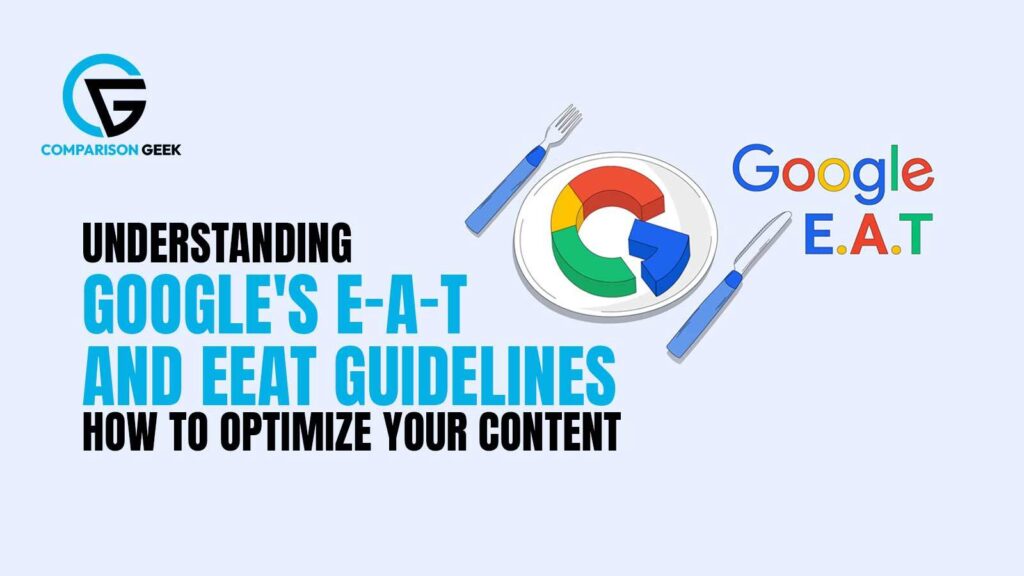Quality content is one of the prime things any SEO expert in this world of search engine optimization gives importance to. It has devised the proper guidelines, making sure that only the cream rises to the top, by Google towards measuring quality. Since they refer to these as E-A-T and EEAT, let’s break it down in simple terms so we know what they refer to and how it affects the SEO on your website.
Table of Contents
ToggleWhat is E-A-T?
E-A-T is the abbreviation for Expertise, Authoritativeness, and Trustworthiness. Google employs such attributes in ranking a website, including the content it hosts. Here are the definitions for each:
Expertise:
This is how up-to-date you are or the skills that you have as a writer about the said topic. For instance, if you are talking about medical advice, Google favors content from an accredited health professional..
Authority or Authoritativeness :
This measures how credible and renowned the content creator and the website is. If other websites or experts cite your content or even mention you as a reference, Google values your content as more authoritative.
Trust:
The trustworthiness factor, whereby the trustworthiness of your website and content is deemed. A trustworthy website is one with relevant truthful content and a safe experience for the user. Trust can be obtained by having a secure website through HTTPS and transparency information that is the most transparent.
What is EEAT?
The recent addition by Google to its E-A-T guidelines is a new “E”: Experience. Therefore, EEAT is a new concept that refers to Experience, Expertise, Authoritativeness, and Trustworthiness. Google now takes into account whether the author of the content has firsthand experience with what he or she is writing.
For example, when one is writing about how to get to Paris, such information is precious because it is first-hand from the writer since he or she has been to Paris before. Google tends to favor content from people who have lived experiences because probably they are more insightful and accurate.
Why EEAT Matters for SEO
The primary purpose of Google, then, is to offer users the most relevant content. EEAT helps Google evaluate whether or not the work that you do achieves the goal. The higher that score in EEAT, the higher ranking on search engine results translates to more traffic and visibility.
For industries like health, finance, or legal services short, “Your Money or Your Life” or YMYL sites-strong EEAT is much more important. These can affect people’s health, safety, and/or financial well-being, so Google holds them to a higher standard.
How to Optimize Your Content for EEAT
Now that you know what EEAT is, let’s dive into practical steps you can take to optimize your content and improve your SEO.
1. Highlight Your Knowledge
If you are an expert in something, say it. If it is about traveling, the use of some product, or the completion of some project, make sure that your readers know you have first-hand information on the topic you are going to talk about. This will build trust and authority with your target audience and Google as well.
2. Employ Experts to Produce Content
Look at writing or rewriting on very technical or specialized topics to audiences that are experts in the given fields. This applies particularly to YMYL content areas. You may also include an author bio that you would use to highlight the qualifications of the authors, thereby building the writers’ expertise and potentially the page’s authority.
3. Establish Authority and Trust
It builds a good reputation online and therefore improves the authority of your website. Quality niche-relevant sites link to your content. By linking your website to authoritative sites, Google suggests that your website shares credible information.
Apart from the aforementioned reasons, one can always rise to a higher level if he or she is positive on social media and gets even good mentions from other experts with positive reviews.
4. Trustability
Make your website trustworthy. This means that your site has encryption on it to make sure that it’s not easily hacked (HTTPS), that contact information is clear and easy to find, and the design of your website seems more professional. If your site deals with sensitive personal information, such as money or personal details, you must make sure that you are all following the regulations regarding privacy and securing users’ data.
Another positive attribute is transparency. If you are reviewing a product, you should indicate whether you’re sponsored by the vendor or if you have any affiliation. This is what gives your site credibility.
5. Accurate Citations and References
Add facts and use reliable sources to increase the trust and credibility of the content. Whether it is a research paper, a government publication, or an expert’s opinion, showing evidence that your content is created on reliable information is important. This matters more for YMYL content.
6. Develop Great Content End
Your content should be useful, clear, and well-structured. Give them solutions to problems, an answer to their questions; you must never feed them something with fluff and filler content. The more helpful your content is, the more likely the users are going to trust and come back to your site.
Make it readable and flowing by breaking large blocks of text into smaller paragraphs, with headings, bullet points, and images as needed for the user experience.
7. Gather User Feedback
Use user-generated content such as reviews and testimonials to build credibility. Ask your audience to share their thoughts; you can always answer the questions that may arise. It shows that you care about people and are out to deliver value.
8. Mobile Optimization and Speed
A great site will work on any device, but especially mobile phones, since so many folks view the internet now from their cell phones. Plus, ensure that your website loads fast. Your website’s reduced user satisfaction can create damage to your rankings.
Expert Tips: EEAT Site Maintained High
These are a couple of expert tips for maintaining the EEAT of your site high:
- Fresh Content As Needed: Information changes, so be sure that the content you have on your website is always fresh and updated, especially if you are doing a site around health or finance.
- Online Reviews: Monitor your business reviews and take care of the bad stuff. This would mean Google will know you put some importance on trust and customer experience.
- Share Your Credentials: If you and/or other members of your group have relevant credentials related to your topic, make these available on your website. This may have the effect of creating an illusion of more expertise and authority.
Conclusion
If you’re looking to strengthen your SEO strategy for sustainable success, it’s essential to understand Google’s EEAT principles—Experience, Expertise, Authoritativeness, and Trust. These four components not only help your content rank well but also make it more engaging and relevant to your audience. EEAT isn’t just about SEO; it’s about creating genuine value for users. When you focus on producing quality, trustworthy content, you’re building credibility with both users and search engines, helping your site stand out in a competitive digital landscape.
To support your EEAT strategy, explore the best keyword research tools to find relevant terms that resonate with your audience. Additionally, stay ahead of the latest developments with our insights on 2024 SEO Trends, Changes, and How to Prepare. Leveraging these resources can help make your SEO efforts more effective and enduring.


